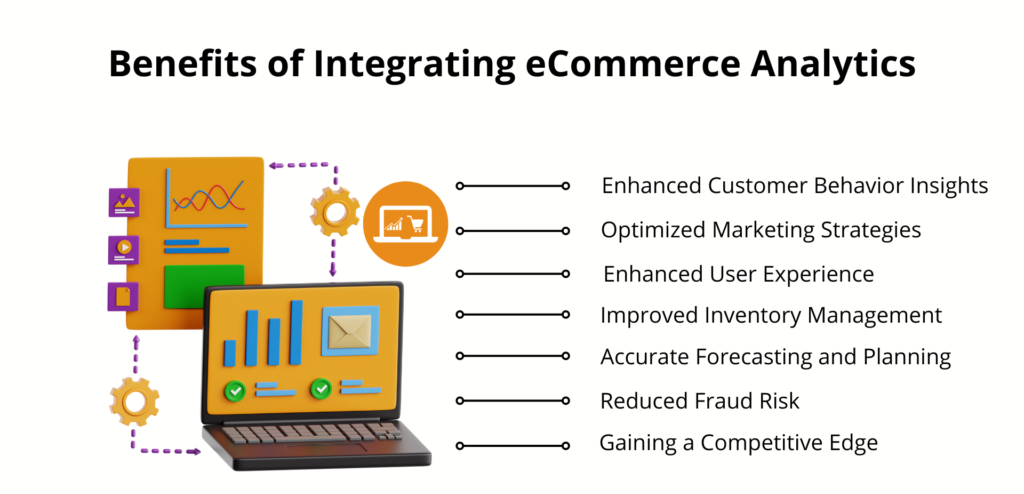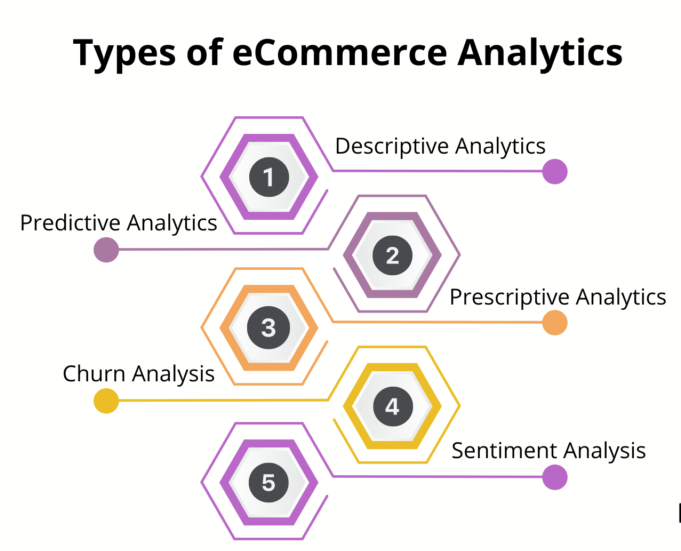Growth with Recursive Model Analytics for ECommerce
In the rapidly evolving world of e-commerce, understanding customer behavior is essential for driving sales and conversions. With over 26 million e-commerce platforms globally, businesses face intense competition. Leveraging recursive model analytics for ecommerce is a powerful way to gain deep insights into customer preferences, optimize marketing strategies, and ultimately enhance revenue. This guide explores the importance of recursive model analytics, its benefits, types, real-world applications, challenges with ready-made platforms, and how custom solutions can drive growth.

Table of Contents
The Power of Recursive Model Analytics
recursive model analytics for ecommerce refers to a data analysis approach that builds on previous insights to continuously improve understanding and predictions about customer behavior. This iterative process enables businesses to refine their strategies based on historical data, leading to better decision-making and enhanced customer experiences.
By utilizing this method, e-commerce businesses can not only track customer interactions but also predict future behaviors, making it indispensable in today’s competitive landscape.
Key Benefits of Recursive Model Analytics for ECommerce

- In-depth Customer Insights:
Recursive model analytics allows for a deep dive into customer behavior and preferences. By analyzing past data iteratively, businesses can identify trends and patterns that inform marketing strategies and product offerings, ultimately improving customer satisfaction and driving sales. - Enhanced Marketing Effectiveness:
This analytical approach empowers businesses to evaluate the effectiveness of marketing campaigns over time. By continuously analyzing key performance indicators (KPIs), such as click-through and conversion rates, businesses can optimize their marketing efforts for maximum ROI. - Improved User Experience:
By examining user navigation and engagement metrics recursively, businesses can identify friction points in the customer journey. This insight allows for ongoing improvements in website design and functionality, leading to enhanced user experiences and increased loyalty. - Dynamic Inventory Management:
Recursive model analytics offers valuable insights into inventory management. By tracking product performance and demand trends over time, businesses can optimize stock levels and minimize the risk of stockouts or overstock situations. - Accurate Forecasting and Planning:
Utilizing recursive analytics enables businesses to forecast future trends and behaviors more effectively. By leveraging historical data, companies can anticipate customer needs and adjust their strategies proactively. - Mitigating Fraud Risks:
This analytical model also plays a crucial role in identifying and mitigating fraud. By continuously analyzing transaction data, businesses can detect patterns indicative of fraudulent activities, protecting against financial losses. - Sustaining Competitive Advantage:
In the crowded e-commerce market, businesses that adopt recursive model analytics can gain a significant edge. By monitoring performance and adapting strategies based on data-driven insights, they can respond swiftly to market changes and customer demands.
Types of Recursive Model Analytics

The realm of recursive model analytics is vast, encompassing various methodologies that cater to different business needs. Here’s an overview of the most commonly implemented types:
- Descriptive Analytics:
This form of analytics summarizes past data to provide insights into what has happened. Key metrics such as sales revenue and website traffic help businesses understand historical performance. - Predictive Analytics:
Predictive analytics uses historical data to forecast future outcomes. By analyzing trends and patterns, businesses can predict customer lifetime value and adjust their strategies accordingly. - Prescriptive Analytics:
Going beyond mere predictions, prescriptive analytics recommends specific actions based on data analysis. It helps businesses identify effective strategies to maximize revenue and improve operational efficiency. - Churn Analysis:
This analysis identifies customers who have disengaged from the brand. By understanding churn patterns, businesses can implement targeted retention strategies to improve customer lifetime value. - Sentiment Analysis:
Analyzing customer reviews and social media mentions allows businesses to gauge the emotional tone associated with their brand. This insight helps measure customer satisfaction and address areas for improvement.
Real-World Applications of Recursive Model Analytics for ECommerce

recursive model analytics for ecommerce provides actionable insights across various aspects of an e-commerce business. Here are some key use cases:
- Customer Segmentation and Personalization:
E-commerce businesses can segment their customer base into distinct groups based on behavior and preferences. For example, Amazon uses recursive analytics to provide personalized product recommendations, significantly boosting repeat purchases. - Inventory Management and Demand Forecasting:
Analyzing sales trends and customer demand allows businesses to optimize inventory levels. Zara employs recursive analytics to monitor real-time sales data and adjust inventory accordingly, ensuring popular items are always available. - Dynamic Pricing Strategies:
Recursive model analytics helps businesses optimize pricing by analyzing competitors’ prices and customer sensitivity. Walmart uses advanced analytics to dynamically adjust prices, ensuring competitiveness while maintaining profit margins. - Enhancing Customer Journeys and Conversion Rates:
Understanding the customer journey through recursive analytics enables businesses to identify drop-off points and optimize the user experience. ASOS, for instance, tracks customer interactions to enhance their checkout process, leading to increased conversion rates. - Marketing Campaign Optimization:
Recursive analytics allows businesses to evaluate the performance of marketing campaigns across different channels. Nike leverages these insights to allocate its marketing budget effectively, achieving higher returns on investment. - Customer Retention and Loyalty Programs:
Analyzing customer behavior enables businesses to develop effective loyalty programs. Starbucks monitors customer interactions to tailor rewards, enhancing loyalty and increasing customer lifetime value. - Product Development and Innovation:
Insights from recursive analytics inform product development. For instance, Glossier tracks customer feedback to identify market gaps, leading to new product innovations that resonate with consumers.
Challenges with Ready-Made Recursive Model Analytics Platforms
While off-the-shelf recursive model analytics platforms offer convenience, they often have limitations that can hinder their effectiveness. Here are some challenges to consider:
- Limited Customization:
Many ready-made platforms cater to a broad audience, lacking the flexibility needed for specific business needs. Custom-built solutions can offer tailored features that align with unique operational processes. - Integration Issues:
Integrating a ready-made platform with existing systems can be challenging. Custom solutions ensure seamless integration, enhancing data accuracy and operational efficiency. - Scalability Concerns:
Many off-the-shelf platforms struggle to scale as data volumes grow. Custom-built recursive model analytics can be designed for scalability, accommodating increased complexity without compromising performance. - Data Security Risks:
Using third-party platforms may expose sensitive data to security vulnerabilities. Custom solutions allow businesses to implement robust security measures and maintain control over their data. - Long-Term Cost Considerations:
While initial costs for ready-made platforms may be lower, ongoing subscription fees can accumulate over time. Custom solutions might require a higher upfront investment but can yield long-term savings. - Data Ownership and Vendor Lock-In:
Utilizing a third-party analytics platform can raise concerns about data ownership. Custom-built analytics ensure that businesses maintain full control over their data.
Conclusion
Recursive model analytics for ecommerce is essential for businesses aiming to thrive in a competitive digital landscape. By continuously refining insights and strategies, companies can significantly enhance customer understanding, optimize marketing efforts, and improve inventory management.
When selecting an analytics platform, businesses must consider their unique needs. While ready-made solutions offer convenience, they may lack the customization and scalability necessary for sustained growth. Custom-built recursive model analytics platforms provide the flexibility, security, and long-term value that can drive success in an ever-evolving market.
How Ijona Technologies Enhances Your ECommerce Analytics Strategy
Ijona Technologies specializes in developing custom recursive model analytics for ecommerce solutions tailored to specific business needs. Our platforms are built for scalability, ensuring security while delivering actionable insights that align with your business goals. With extensive experience in crafting robust solutions for leading e-commerce brands, we empower businesses to realize their analytics vision.





